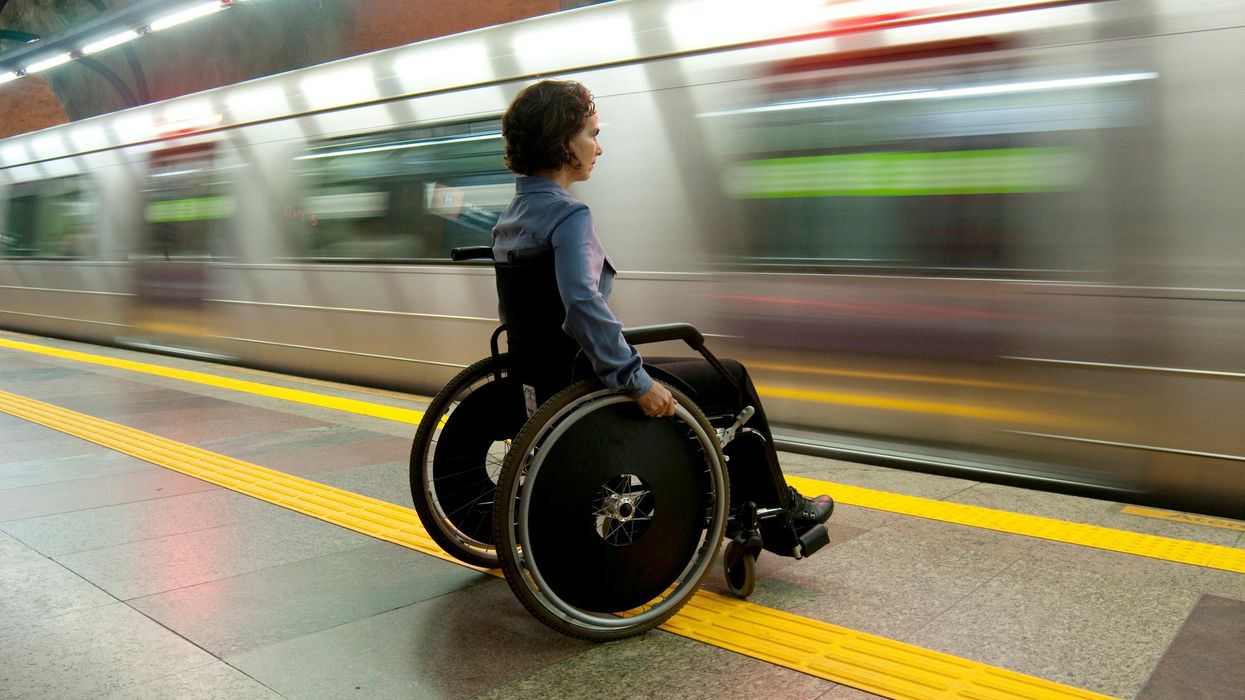Moya Lothian-McLean
Jan 23, 2020

Disabled people continue to face difficulties when travelling on public transport in the UK
Getty/iStock
Public transport in this country receives a lot of criticism. Trains subject to frequent delays and cancellations, bus services being slashed, a lack of investment in northern city travel infrastructure that desperately needs it.
Much of these issues are down to cuts. But one problem that’s not talked about enough is how disability discrimination and inaccessibility on public transport are costing disabled individuals time, money and dignity.
Like Katie Pennick, a wheelchair user who recently had to sit and watch her train leave the platform without her on it, after staff claimed there wasn’t enough time to put the ramp down.
Pennick documented the gruelling experience on Twitter, explaining that not only was she prevented from getting on the train once she arrived, she’d been delayed by the refusal of a bus driver to let her off until the entire (full) bus had disembarked.
Pennick works for Transport for All, which campaigns for accessible transport. She has spoken before about the toll disability discrimination takes on disabled individuals trying to use public transport.
Sadly, her experience isn't unusual. Research from disability charity SCOPE last year found that 80 per cent of disabled people are made to feel highly stressed at the thought of using public transport.
The problem is rife across both public transport and private modes of travel, like taxis, which can charge disabled users arbitrary higher fares for use – or refuse to take them, full stop.
In October 2019, wheelchair user Ryan McDade was forced to wet himself after three buses refused to stop for him, an experience he described as “dehumanising”.
The same month theatre blogger and activist Shona Cobb tweeted about being left weeping on the tube after TFL staff wrongly told her Farringdon station was step free.
Upon arrival she discovered it wasn’t – and worse still, there were no staff to great her as promised, leaving her trapped on the train.
Although the government launched a new transport access campaign in 2019, critics said it doesn’t yet tackle the massive and systematic problems that face disabled people attempting to use public transport.
It seems like a no-brainer to say but perhaps it needs spelling out: public transport is public. Which means it should be accessible to all.
Right now, the situation for disabled individuals trying to go about their business just isn’t good enough.
More: The IDF is officially on TikTok and we’re ready to quit this simulation
Top 100
The Conversation (0)












